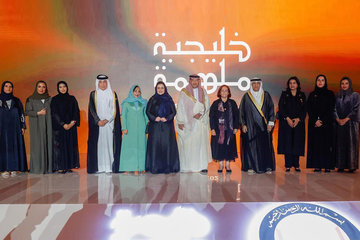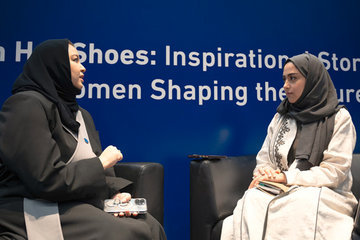
There is no denying that the world is often drawn to key dates and commanding headlines. Be it triumphant or tragic events, it can be said that history is often recounted through its key moments, from the birth of Christ to the First Hijrah, the Black Plague to September 11. It seems clear, therefore, that 2020, which began in full force, will go down in history as “The Year of Coronavirus.”
This pandemic will transform the globe and lead to a re-evaluation of its priorities, relations, and concepts. We must admit that we are living in an unprecedented time; this outbreak has revealed the fragility of states and their weak internal structures. Indeed, avarice, the desire to dominate, and intense rivalry fuelled by self-interest have caused a rift amongst people, and have done so under our purportedly universal interconnectedness, which has produced the well-known term “the global village.”
Europe, overwhelmed with the current pandemic, from the mildest to the most severe cases, is going through an unprecedented health crisis. We are witnessing this situation in many countries as they have come to the realization that solely focusing on gross domestic product and growth rates is a one-sided picture that leaves out the broader perspective.
Indeed, there have been major strides made across the board, particularly when it comes to technological development, innovativeness, and competitiveness but, along the way, the human aspect of our advancement has been largely neglected. With excessive liberalism leading the world economy, the focus has switched to profitability and revenue, and, hence, governments have ignored their duty towards the people.
This has perhaps been largely abetted by the nature of certain systems. It has resulted in leaders whose focus is to push thinking and place an emphasis on current matters. Hence, many may find growth that is measured in and numbers achieve them In contemporary history, the world has undergone various crises that offered the opportunity to realign its priorities. The most recent example was the 2008 financial crisis. However, many politicians have been directing all their efforts towards reforming the economy and have, consequently, forgotten about their people.
With regards to health, pharmaceutical companies continue to work on increasing production and profit without investing enough in research on epidemics and diseases. However, responsibility mostly lies with governments since such research requires significant investments. Indeed, Joschka Fischer, former foreign minister and vice chancellor of Germany, recently pointed out that having a public healthcare sector would be more equitable on many levels, as its primary aim is to, first and foremost, serve society. He also explained that it is the duty of governments to ensure the provision of essential medical supplies and drugs, as well as the development of new ones.
With every crisis comes examination and reflection. If postmodern thinkers considered that world wars and other historical setbacks have occurred as a result of the failure or limitations of modernity, then this pandemic will surely open up a debate on whether “postmodernism” has succeeded as a viable alternative and will call for an assessment of major theories that lay behind it.
The “post-coronavirus” world should not be the same as before. Something as small as a virus has revealed the fragility of systems and our inability to contain its spread, and our certainty, convictions, and various advancements have fallen short in this “test” of, and against, our humanity.
Closing borders, building a separation wall to govern our own countries, and leaving the rest of the world to manage on their own are all political concepts that have spread in many regions of the world, and have now been unravelled by a tiny virus.
What happened in Wuhan, China, and what is happening elsewhere is now affecting every corner of the globe. From metropoles like Washington to the English countryside, no one is immune to this. The concept of sovereignty itself will be re-examined; what happens in a country will affect many places in the world. Indeed, one fact that is completely overlooked by politicians is that one cannot live on an island in complete isolation from others.
The outbreak of the novel virus in China still bears many questions and the world demands explanations. “Coronavirus” is not a Chinese affair, or rather it is no longer just a Chinese affair; it is an issue that has touched every person whose life or lifestyle has been affected by this disease.
The world is heading towards a hypothetical government in which it agrees to the following: each country has its own margins and parameters but it cannot implement actions that harm the world, even within its borders. State sovereignty, whose primary principles can be traced back to the Treaty of Westphalia in 1648, must be redefined in a conscientious way after this epidemic.
In light of great hardships, “simpler” issues will no longer carry the same weight; people and governments will realize that they have directed their efforts towards less significant matters.
This pandemic has reaffirmed the importance and the possibility of the unity of humankind, as there is no longer a clear distinction between countries and amongst social classes. We are experiencing a return to basic needs and yearning for solidarity. This worldwide crisis has exposed our inability when it comes to seemingly simple matters; putting an end to this pandemic will require an all-encompassing humanitarian effort.
The source of the world’s strengths are the same as its weaknesses. Intervention and interconnected interests can help achieve growth in times of prosperity, and reduce hardships in more dire times. There is a resurgence of the questions of basic human needs, as represented in Maslow’s pyramid. In a rare historical phenomenon, we are all connected by the same problem that has brought us all to the same plane regardless of our differences or similarities.
This novel coronavirus has raised an important question: Is the European system that fragile? How did China manage to control the spread of the virus and help other countries? To extend this question: Is the Western liberal system worn out because of its dependency on the economy and interests of big business? Is the Chinese model, following the socialist framework of the Communist Party of China, more efficient in dealing with the crisis, which in turn proves that it had a coherent political and economic system and internal structure that steered the economy for the sake of healthcare?
This leaves us with a sea of questions and a world forming again. It is the moment to face the truth: In order for policies to be successful, they must be human-centric; the world needs the humanization of politics. The sense of uncertainty and helplessness is a universal feeling that we have all felt, and it will be a critical point from which to reorganize relationships and redefine what has long been taken for granted.




























